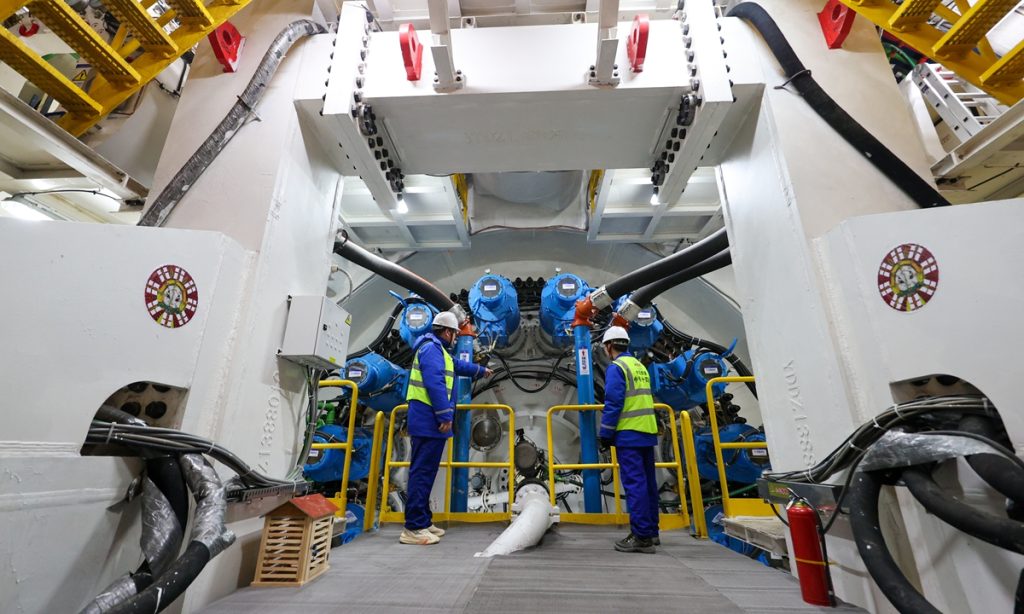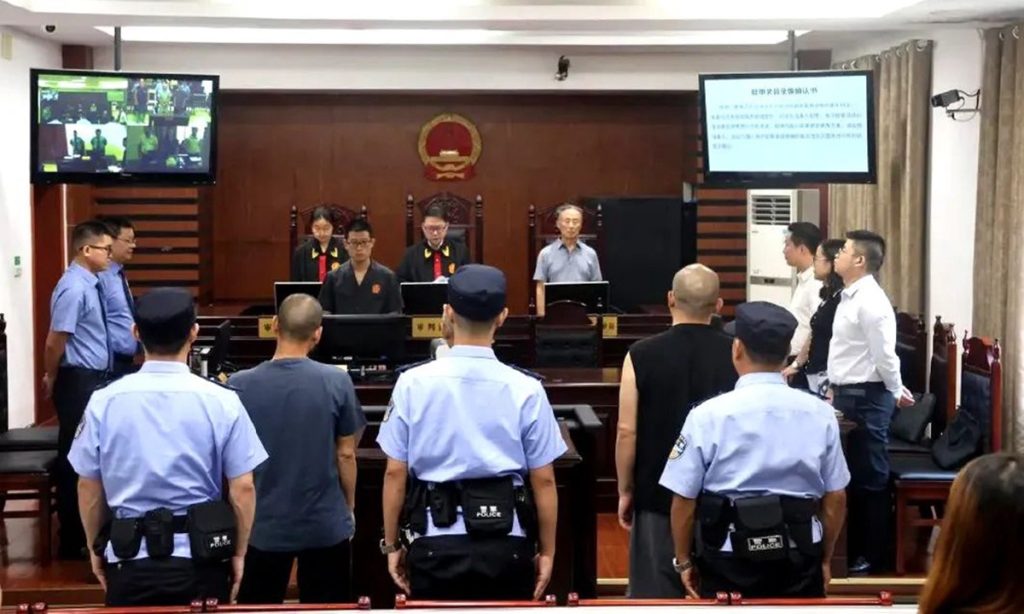China’s tunnel boring machine sector leaps ahead, manufacturing 7 out of 10 TMBs used globally

China's technological development in tunnel boring machines (TBMs) has greatly advanced, from scratch to cutting-edge over the past decade, exemplifying the country's progress in high-tech manufacturing.
Currently, seven out of every 10 TBMs used worldwide come from China, while 95 percent of the TBMs operating in the country were manufactured domestically, according to media reports.
In a recent development, China’s largest-diameter underwater shield tunnel began the tunneling process on Sunday for Huanggang Road in Jinan city, East China’s Shandong Province, using the “Shanhe” TBM with a diameter of 17.5 meters, China Media Group reported on Monday.
TBMs can excavate tunnels using a circular cross-section that drills through soil and rock strata, seamlessly laying concrete segments to construct tunnels, subway tubes and sewer lines.
The “Shanhe” TBM is 163 meters in length, 5,200 tons in weight, and the diameter is equivalent to the height of a 6-storey building, which will operate through 3,290 meters in the tunnel that has a total length of 5,755 meters.
The length of the “Shanhe” TBM is equivalent to 16 connected buses with a weight equivalent to 520 adult elephants, making it the largest among the TBMs used in construction projects globally, said Huang Lu, a project manager in charge of the TBM.
The “Shanhe” TBM is equipped with advanced equipment, including dedicated telescopic cameras. The relatively larger TBM requires a more complex manufacturing process and poses construction difficulties, with higher risks compared with traditional models, according to CMG.
In recent years, the diameter of TBMs produced in China has been increasing, enabling their use in a wider range of applications and significantly improving the efficiency of construction projects. The use of TBMs has also been extending from traditional fields such as the construction of urban rail transportation to more sectors including railway construction, mining, and other industries, offering a new growth point for economic development.
China’s continuous industrial upgrading and transformation will further spur high-quality economic development, while the rapid development of emerging industries including the high-tech manufacturing will become an important engine driving up the economy, Wang Peng, an associate research fellow from the Beijing Academy of Social Sciences, told the Global Times.
The market scale of China’s TBMs reached 27.6 billion yuan ($3.87 billion), achieving year-on-year growth of 14.05 percent in 2022, which is expected to reach 40 billion yuan in 2024, according to data from the China Construction Machinery Association.
Profits generated by Chinese industrial enterprises above the designated size increased by 3.6 percent year-on-year in the first seven months, up 0.1 percentage points from the first half year, the National Bureau of Statistics said in August. High-tech manufacturing led the way, with the sector's profits soaring 12.8 percent year-on-year from January to July. The improvement boosted overall industrial profit growth rate by 2.1 percentage points.

